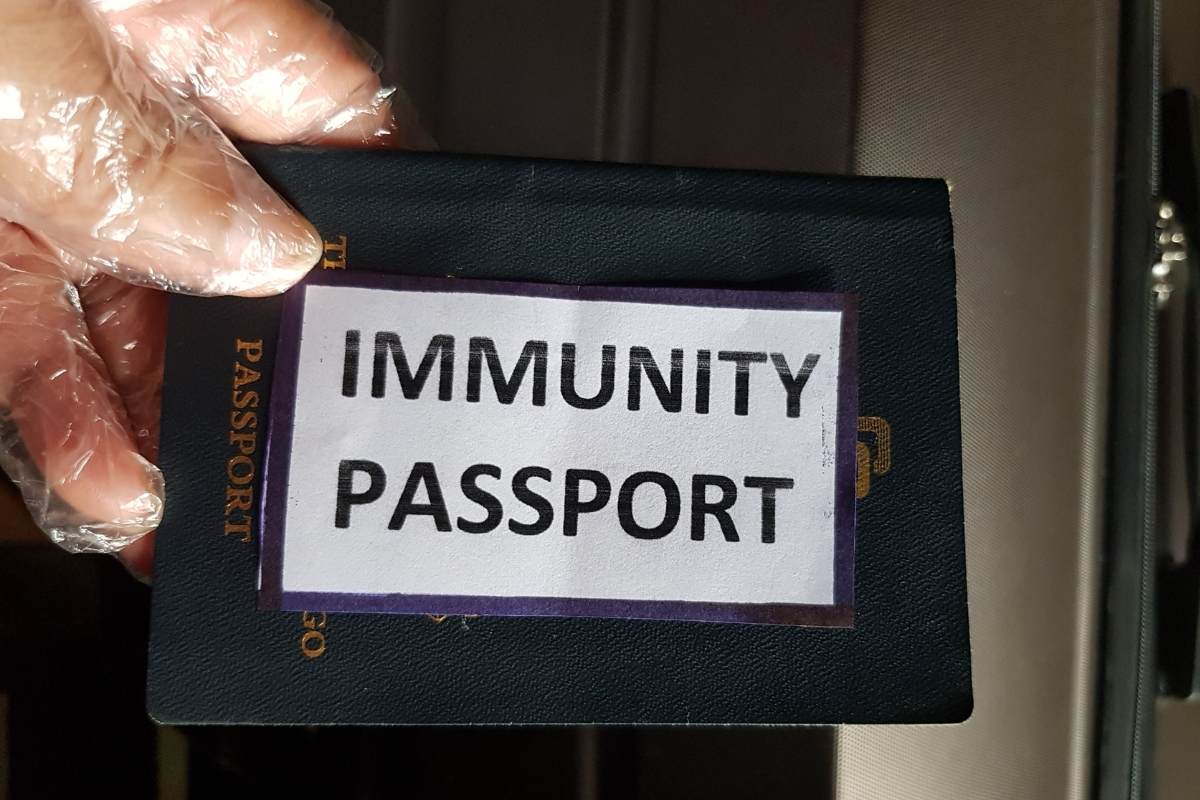Immunity Passports – Knowing All About them and their Aspects

Immunity passports represent a former idea deemed quite controversial and the debate around the same resurfaced right in early 2020 when COVID-19 reared its fangs worldwide. These documents would help in certifying that the holder of the passport had witnessed a positive immune response towards COVID-19 and would be presumed to be resistant towards future infections.
Holders of these passports would be released safely from restrictions pertaining to public health while being allowed to come back to work or study freely while carrying out a more normalized everyday lifestyle. Yet, the initial idea saw varying points of view amongst several sections of society.
The concept of subdividing global populations into two blocs with hugely different social privileges became a contentious topic with severe implications from a moral perspective. No Government ultimately implemented this system of certifying immunity although some authorities are once again considering the idea although it has been dismissed by various experts.
Where the immunity passport debate currently stands?
People are already rethinking travel plans and modus operandi post COVID-19. These include choosing to travel domestically, abiding by frequently changing restrictions, quarantining whenever necessary and making sure that accommodations follow hygiene, safety, distancing and security measures to the hilt.
More people are choosing serviced apartments for their stays now. In a major city which draws thousands of travellers, for instance, people are looking for apartments with the best amenities.
There is also demand for serviced apartments which ensure greater comfort akin to regular accommodation. At the same time, guests enjoy greater privacy and safety. They do not have to mingle with others at all. They also enjoy contactless service at the same time. Yet, immunity passports represent an idea which has not quite come to fruition and with good reason according to most experts.
Some experts have come up with several valid reasons for rejecting the idea and the choice will not be available to people for a long time. This is because reports indicate that spread of COVID-19 is already rampant throughout global workplaces and this will no longer be restricted with lockdowns since several major employers remain exempt from the same. In the near future, a greater percentage of the worldwide population will be immune to the virus and increasing vaccination will also have a role to play in this. Some state that immunity passports represent an idea which is impractical and absolutely unethical, pointing fingers to prevailing uncertainties linked to immunity. They also talk of issues regarding testing, incentives that are perverse and uncertain economic advantages along with concerns related to privacy and risks arising from discriminatory effects.
Some state that there should be a presumptive movement towards preserving freedom of movement for as many people as possible. Additionally, they state that failure to recognize the lower infection threat for immune individuals will equate to punishing people for low-risk behavioral patterns. They also argue that additional social and individual advantages will accrue if people are freely allowed to engage and move if they have proper immunity against the virus. Targeted solutions should be implemented in this case for immunity passports to maximize benefits for a growing number of people as per this school of thought.
Treatment and Perception Hurdles
Hurdles remain in perceiving and treating the increasing category of those who have already received the vaccine in comparison to those who have not received the same. There should be a clear policy first about any extension of newer privileges to those who are now immune so that they do not harm the ongoing response of the public health sector towards COVID-19 by their actions.
Those testing positive for immune responses towards the virus or those who have received the vaccine will majorly rail against restrictions on their daily activities. Entertainment and leisure zones along with other businesses will have growing incentives for setting up their own diverse practices for different treatment of customers and employees in case they offer clear immunity evidence. People who are not immune will however be differently perceived and treated as compared to those who are immune, irrespective of whether the government and other authorities intend the same. The impracticality aspect comes into the picture since a large part of the global population, i.e. those who are young, will not be vaccinated for a long time until the at-risk sections receive their vaccines first.
There are clearly laid down objections to immunity passports, namely their ineffectiveness, their illegal or immoral nature and also their contribution towards possible future inequality in society. The first concern is regarding immunity passports worsening the pandemic owing to inaccurate testing being relied upon for this purpose or risk behavioral patterns emerging from receiving certificates. Inaccurate testing results were a major point of concern sometime earlier with the WHO (World Health Organization) talking against implementation of immunity passports for this valid aspect.
However, since that period, antibody tests have seen greater accuracy and immunity levels have gone up throughout the global population. Positive predictive values of tests have also increased in the bargain. The worry remains about people being rewarded for potentially risky behavior as compared to those who do not have immunity passports. Another concern exists about the legal and ethical suitability of dividing people into two segments where one is more privileged. Some experts feel however that such discrimination will currently pave the way towards better public safety. They advocate for temporary implementation of these divisions until large-scale herd immunity is achieved. They also point out how the public health guideline of least restrictive intervention is violated by continuing to impose measures on those who are immune.
Also Read: Important Steps for Starting a Successful Online Store
Some other points worth considering
Another concern pertains to the level of increasing existing inequities in society. The pandemic is already affecting disadvantaged social groups more than others, including the poor. Adding another privilege layer via immunity passports may benefit those who are advantaged already and more than those who are not as privileged. This needs access control for vaccines to ensure that need and not social privilege determines the recipients.
Immunity passports will also need monitoring for certification and checking validity each time they come into play for executing activities that passports cannot cover. This system of social monitoring will naturally raise more concerns regarding privacy and surveillance in the bargain. The most important aspect is that it still remains hazy as to whether those who have recovered from COVID-19 or got vaccinated are likely to infect others.
It may be more suitable that people with immunity passports get freedom to partake in things which would otherwise have put them at risk of getting infected, i.e. commuting to work and so on. This will be better than allowing them to do things that will naturally put others at risk as per a section of experts. The immune and certified people should thus continue to wear their masks while also distancing themselves physically in public for the time being since they may infect others without knowing. Immunity passports will have benefits for the holder and those dependent upon their services although it will be vital to remain transparent about demands being placed on the holders. Employers may require holders to come back to work for instance while certain essential section workers including teachers and nurses should receive the vaccine first.
Since immunity passports will have certain responsibilities and benefits, it should be ensured that current patterns of disadvantages are not exacerbated or simply replicated in the same cycle. Lower income people should get faster access to no-cost vaccines and authorities should work to lower or offset the costs of travelling if they have to reach vaccine centres or areas which are far away or inconvenient. Covering costs of time off from work should also be brought into the narrative in such scenarios. There should be an attempt to make sure that those in precarious job roles are not pressurized or forced to get vaccinated and come back to offices. This percentage should be similar for blue and white collar employees alike.
One solution put forth by a group of experts recommends fusing the freedom and privileges of those with immunity passports with obligatory duties towards others. They state that holders of immunity passports should implement specific duties towards non-holders of immunity passports and those who are not as well off or privileged. This proposal may have issues regarding practical implementation. The nature and type of these duties will be debatable although experts have conceived a buddy system where immunity passport holders will be paired up with non-holders. This may involve duties like manning networks for mutual aid, helping with grocery shopping, interactions with those who are less privileged, working at vaccination centers and helping in getting medical support and vaccination assistance.
Tying those with higher freedom to those with lesser freedom may even lead to a better sense of community wellbeing and camaraderie above all else. The mandatory obligations and duties may narrow the gap between communities as per this section of experts. Looking at both sides of the coin, it can only be stated that immunity passports require several perceptual, social and ethical hurdles to be resolved before they seriously become implementable in the current scenario.












